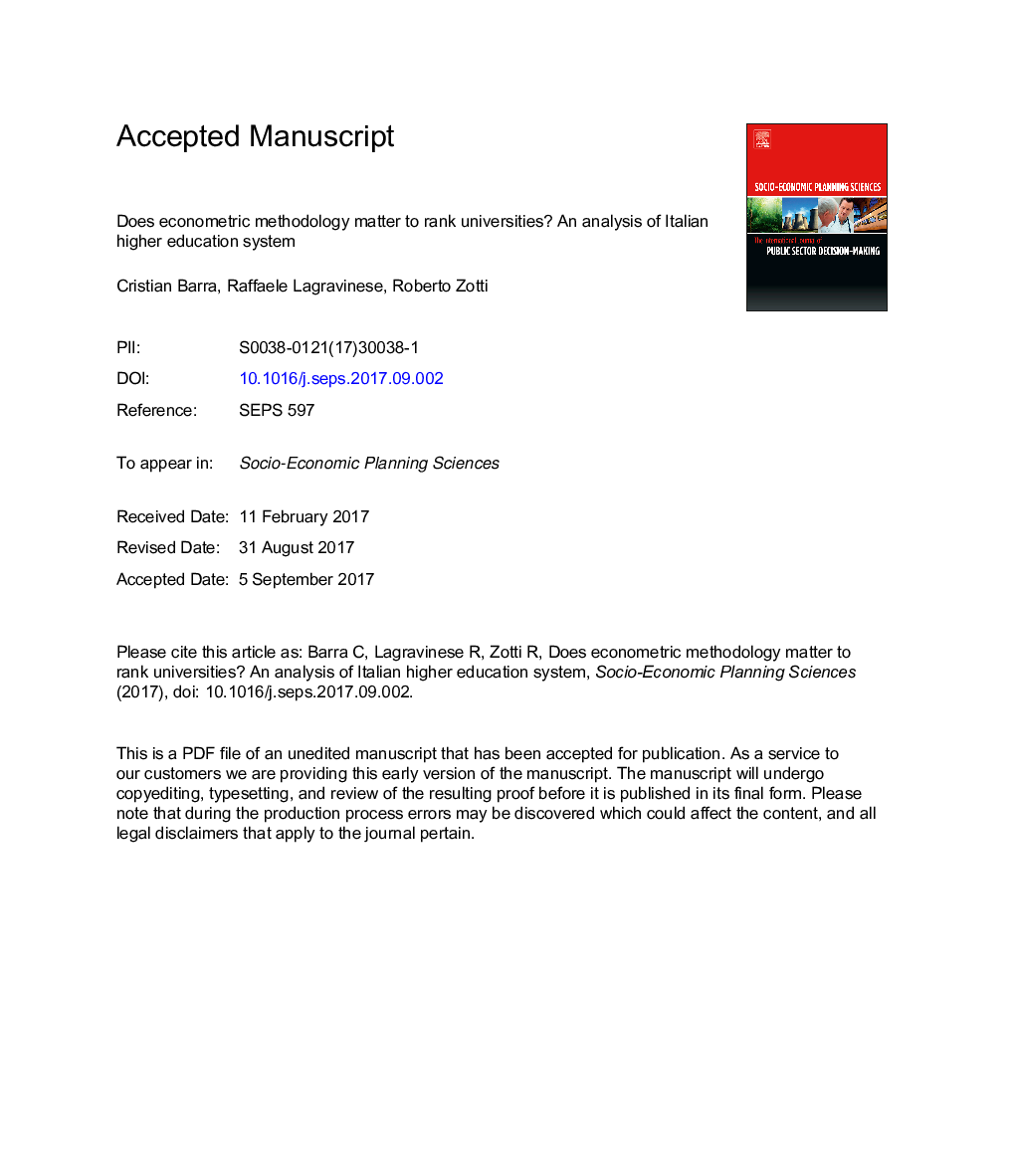| Article ID | Journal | Published Year | Pages | File Type |
|---|---|---|---|---|
| 7388668 | Socio-Economic Planning Sciences | 2018 | 34 Pages |
Abstract
In recent years more and more numerous are the rankings published in newspapers or technical reports available, covering many aspects of higher education, but in many cases with very conflicting results between them, due to the fact that universities' performances depend on the set of variables considered and on the methods of analysis employed. This study measures the efficiency of Italian higher education using both parametric and non-parametric techniques and uses the results to provide guidance to university managers and policymakers regarding the most appropriate method for their needs. The findings reveal that, on average and among the macro-areas of the country, the level of efficiency does not change significantly among estimation approaches, which produce different rankings, instead. This may have important implications as rankings have a strong impact on academic decision-making and behaviour, on the structure of the institutions and also on students and graduates recruiters.
Related Topics
Social Sciences and Humanities
Business, Management and Accounting
Strategy and Management
Authors
Cristian Barra, Raffaele Lagravinese, Roberto Zotti,
